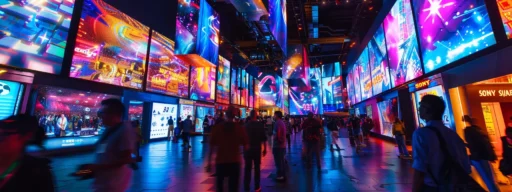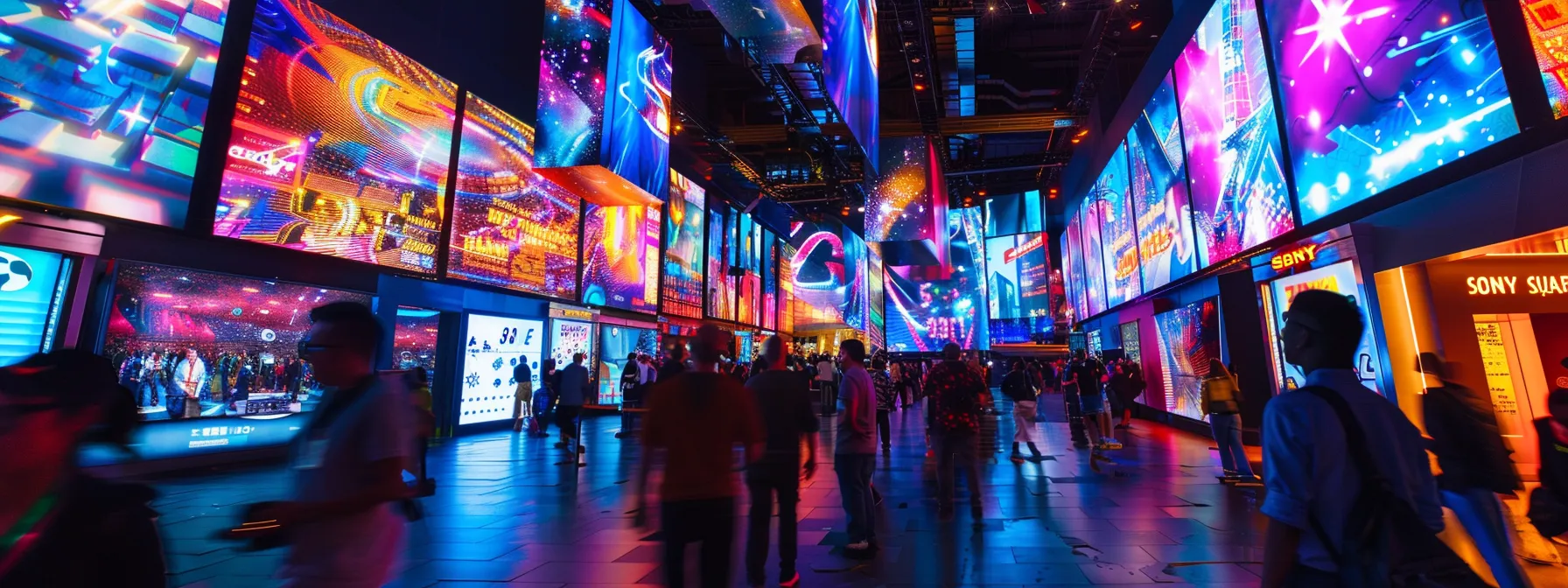Do you feel stuck with old ticketing methods that frustrate fans and artists alike? This post examines emerging entertainment tech trends that shape ticketing and talent management.
We cover new ticketing innovations and smart tools for artist collaboration that reduce delays and boost engagement.
Readers learn techniques to replace outdated systems and overcome everyday frustrations, leading to smoother events and better experiences.
Understanding Emerging Entertainment Tech Trends in Ticketing and Talent Management

Emerging tech trends in ticketing and talent management drive shifts in the entertainment industry landscape. Recent research shows that new approaches boost revenue and support flexible business models.
Modern systems improve accessibility to live events and talent services. Research confirms that digital solutions are streamlining ticket purchases and talent management operations.
Innovations in the field allow companies to adjust their business models for better market performance. These technologies contribute to revenue growth while reshaping the competitive landscape.
Industry experts rely on research to substantiate the benefits of advanced ticketing and talent management systems.
The integration of these trends enhances accessibility and reinforces revenue strategies across the sector.
Key Innovations Transforming the Ticketing Experience

This section covers mobile ticketing solutions that increase consumer convenience with a seamless mobile app,blockchain techniques to reduce fraud, dynamic pricing powered by machine learning for revenue gains, contactless entry systems for improved safety, and data analytics to fine-tune ticket sales.
Emerging technologies and video on demand play a key role in reshaping ticketing experiences.
The Impact of Mobile Ticketing Solutions on Accessibility and Convenience
Mobile ticketing solutions boost productivity by streamlining entry processes and reducing wait times at events.
The emergence of these systems has significantly improved accessibility, aligning with developments in telecommunications and recent trends in mergers and acquisitions, while offering secure alternatives to traditional paywall methods.
These platformssimplify the purchase process and provide real-time updates that benefit both organizers and attendees.
Experts note that integrating mobile ticketing with modern telecommunications frameworks has resulted in more efficient operations and higher customer satisfaction, marking a clear shift in how events manage their entry systems.
The Rise of Blockchain in Preventing Ticket Fraud
Experts observe that blockchain systems in ticketing offer a secure method to validate sales while protecting intellectual property rights.
This approach supports sustainability by reducing reliance on physical tickets and utilizes cloud computing to deliver improved personalization in customer experiences.
Industry professionals report that blockchain technology prevents counterfeit tickets and reinforces trust among customers.
The system also creates opportunities to integrate metaverse environments, opening up new avenues for custom services and secure digital interactions.
The Role of Dynamic Pricing in Maximizing Revenue
Dynamic pricing uses intelligence analysis to adjust ticket costs in real-time based on customer behavior, which boosts monetization and improves user experience.
Industry experts note that this strategy helps companies align pricing with market demand for better content creation and revenue streams.
This approach offers actionable insights that support effective decision-making in event planning.
Market leaders rely on dynamic pricing to adapt quickly, ensuring that shifts in behavior and usage patterns directly inform their monetization strategies and overall user experience.
Exploring Contactless Entry Systems for Enhanced Safety
Contactless entry systems have gained momentum following the pandemic, offering a secure solution for event access while updating infrastructure to support safer operations.
Evidence indicates that these systems help manage consumption patterns efficiently by reducing physical contact and ensuring a smoother experience for guests.
The integration of digital systems with reliable infrastructure has contributed to a strong brand reputation and a resilient ecosystem in the ticketing sector.
Experts note that this advancement not only meets safety concerns but also provides practical value to organizers and consumers alike.
The Growing Influence of Data Analytics on Ticket Sales Strategies
Data analytics plays a key role in refining ticket sales strategies by applying a smart algorithm to track emerging trends in sectors such as esports.
Experts use real-time data to adjust pricing and address misinformation, like fake news, that can undermine fan trust and increase operational risk.
Industry professionals observe that refined analytics not only improve decision-making but also drive advertising revenue by improving targeted outreach.
With clear insights into consumer behavior and market shifts, teams can manage risk more effectively and deliver more efficient ticketing processes.
Talent Management Innovations Enhancing Artist Collaboration
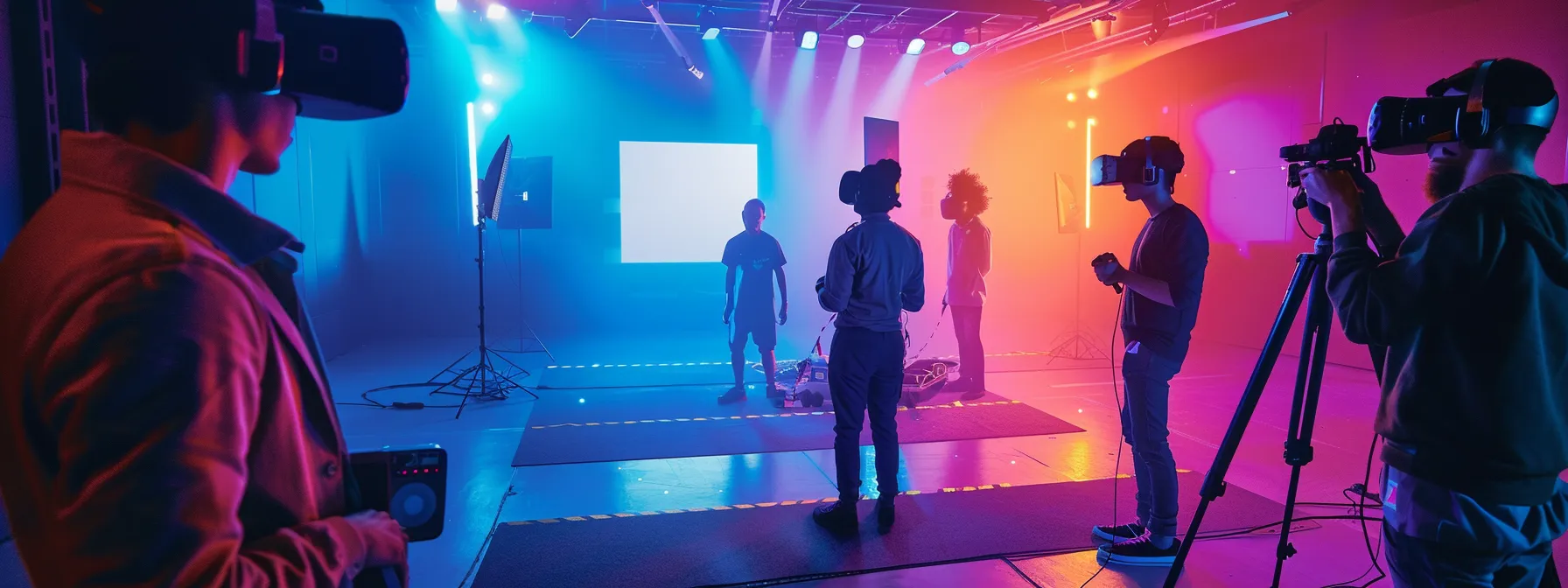
In talent management, AI aids artist promotion, VR enables remote auditions and rehearsals, and digital contracts secure transparent agreements.
Interactive tools boost fan engagement while case studies validate successful platforms.
Experts in broadcasting, big tech supply chain, and digital transformation view these trends as vital energy contributors to advancing artist collaboration.
The Use of AI in Artist Promotion and Discovery
The use of AI in artist promotion streamlines campaign efforts, as systems automatically craft personalized newsletter content and optimize engagement through digital media channels.
The process incorporates robust analytics and machine-driven processes to better connect emerging talent with target audiences.
This technology supports immersion in promotional strategies by delivering immediate feedback on audience responses and campaign performance.
AI-powered methods help refine artist discovery and improve promotional tactics, providing practical insights that artists and agents can use to fine-tune future projects.
Virtual Reality Platforms for Remote Auditions and Rehearsals
Virtual reality platforms allow remote auditions and rehearsals by offering a realistic setting where artists perform from varied locations. These systems work alongside smart speaker technology to deliver clear audio, improving participation despite a global climate that favors remote work.
The technology supports clear ownership of performance materials and diminishes issues related to copyright infringement.
A built-in chatbot streamlines communication by scheduling sessions and offering support, making the approach valuable for professionals in talent management.
The Shift to Digital Contracts and Transparency in Agreements
The shift to digital contracts provides actors with a secure method to handle agreements while ensuring regulation compliance and protecting personal data.
Industry professionals note that these digital agreements foster transparency across social media channels and even extend their benefits to traditional cable television markets, meeting the rising demand for clear and secure processes.
Digital contracts allow talent managersto finalize deals faster and reduce legal disputes by clearly laying out terms for all parties.
Experts observe that companies using these methods see improved trust, as the contracts are aligned with strict regulation and provide robust protection for personal data, effectively addressing issues seen in both modern social media and cable television environments.
Enhancing Fan Engagement Through Interactive Talent Management Tools
Interactive talent management tools are transforming fan engagement by integrating live streaming platforms that allow for real-time audience participation.
Experts observe that custom software development has enabled creators to build features that track active users and capture feedback, driving successful campaigns that benefit both artists and fans.
Industry professionals note that the construction of effective digital environments mirrors practices in manufacturing sectors where precision and reliability are key.
Collaborative projects in custom software development have provided actionable insights that help refine live streaming events and sustain growing numbers of active users.
Case Studies on Successful Talent Management Platforms
Case studies show that some platforms use a well-designed user interface and smooth workflow to simplify the talent management process. These systems use extended reality features to offer remote audition experiences while keeping the process clear and efficient for all stakeholders.
Analysts report that successful platforms rely on targeted advertising to boost artist visibility and user engagement.
They also demonstrate a commitment to sustainable practices by integrating renewable energy concepts into their operations, which supports a forward-thinking approach in the industry.
The Intersection of Ticketing and Talent Management Technologies
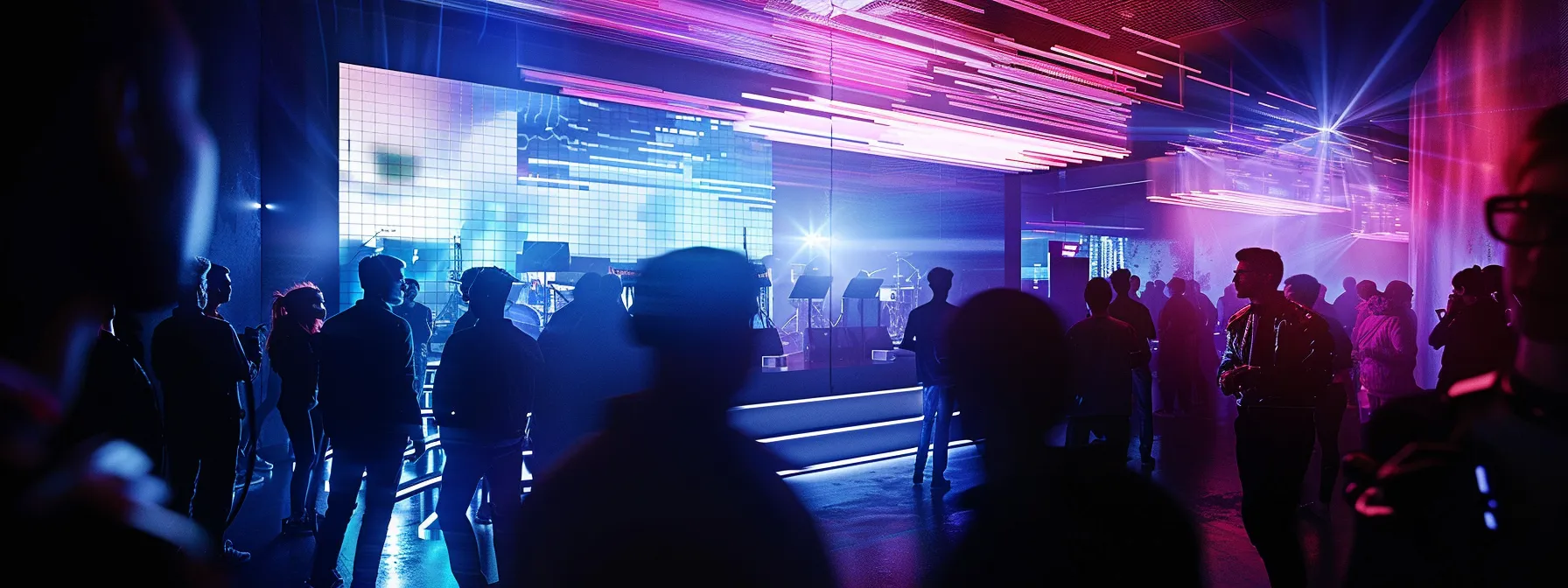
New integrated platforms boost operational efficiency by uniting ticket sales and talent management.
Cross-promotion strengthens offerings, while real-time data sharing benefits event organizers.
AI chatbots improve customer support and CRM systems support artist relations. With 5g enhancing connectivity and social network insights guiding logistics and monitoring climate change impacts, the stage is set for fresh strategies in the entertainment sector.
How Integrated Platforms Improve Operational Efficiency
Integrated platforms provide robust connections between ticket sales and talent management systems, streamlining data flow through internet of things sensors and mixed reality interfaces.
This integration allows organizations to modernize their methodology while using search engine trends and effective storytelling to communicate value across channels.
These platforms drive faster decision-making and reduce manual tasks by merging digital processes with real-time data.
Industry experts note that a clear methodology, combined with adaptive mixed reality tools and reliable internet of things data, delivers tangible improvements to operational efficiency and enhances overall customer experience.
Cross-Promotion Opportunities Between Ticket Sales and Talent Management
Industry professionals use integrated systems to drive cross promotion between ticket sales and talent management.
This approach boosts attention during a live concert while encouraging the adoption of digital tools that support a consistent culture and safeguard brand property.
Organizations gain benefits by linking ticketing data with talent insights to create targeted campaigns.
Practical examples show that aligning strategies during events leads to increased digital adoption, solidifies cultural values, and protects the property of the brand.
The Benefits of Real-Time Data Sharing for Event Organizers
Real-time data sharing helps event organizers adjust their tactics quickly by tracking audience activities in the virtual world.
Access to immediate analytics and insights from sources like the reuters institute for the study of journalism allows them to refine marketing strategies and measure interest accurately, even when monitoring crowdfunding performance and interactions with devices such as amazon alexa.
Organizers benefit as they modify operations based on live audience data while ensuring a smoother event experience.
The immediate availability of data supports quick decision-making, clarifies audience interest, and drives practical adjustments that enhance both ticketing operations and talent management efforts.
Exploring AI Chatbots for Customer Support in Ticketing
AI chatbots streamline customer support by delivering fast responses to the target audience during ticketing transactions. Industry experts in sectors such as the video game industry and television report that these digital assistants improve service quality and ease user concerns.
Private equity investors back these systems as a core component of efficient world wide web operations that drive better customer experiences.
This technology meets customer needs by rapidly addressing issues and reducing wait times during peak processes. Third-party evaluations indicate that AI chatbots provide actionable insights to support real-time decision-making, making the ticketing system smoother for a diverse target audience.
The approach offers practical solutions that integrate seamlessly into world wide web platforms, benefiting sectors such as television and the video game industry.
Understanding the Role of CRM Systems in Artist Relations
CRM systems serve as a central hub for managing artist engagements and maintaining accurate records in a secure database.
They integrate advanced software development techniques to track income trends, reduce the impact of misinformation, and support informed decision-making.
Industry professionals use these systems to ensure that artist relations align with sound journalism practices, enabling clear communication and reliable data storage.
The robust platforms streamline processes by functioning as part of a modern software development framework, which not only protects a comprehensive database but also contributes to consistent income tracking.
Future Trends in Ticketing and Talent Management Technologies
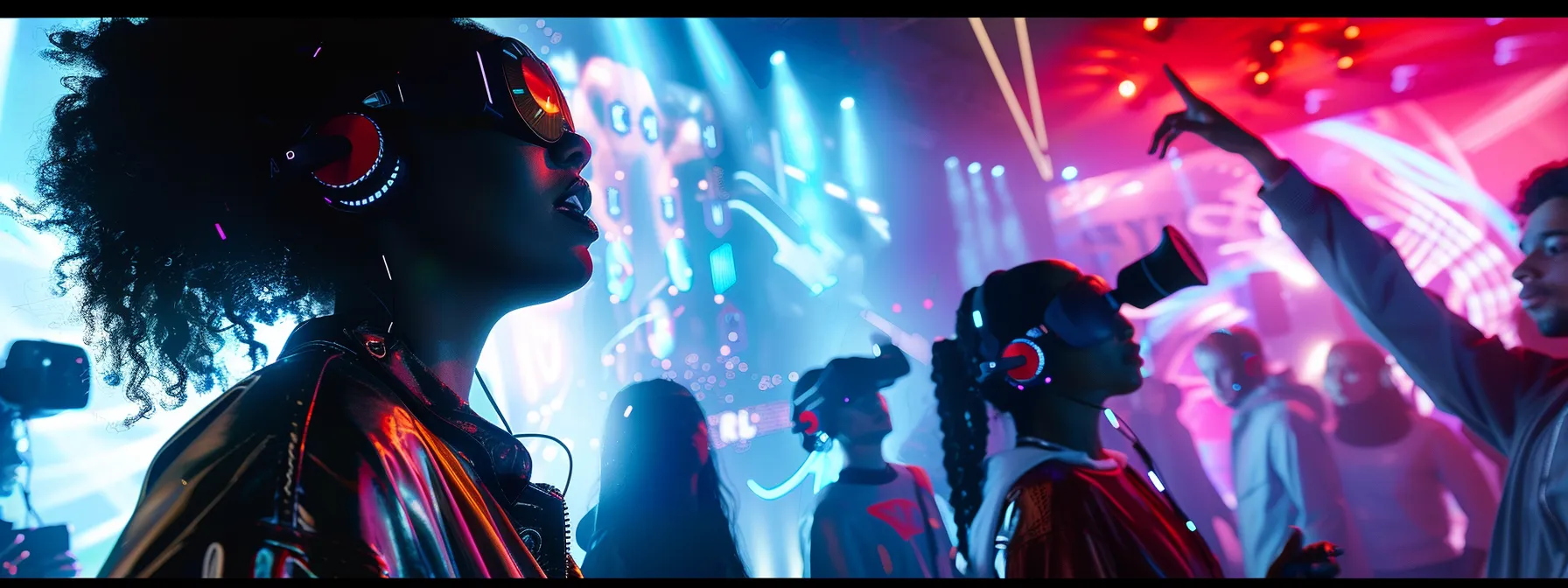
This section examines how emerging entertainment technology is shaping event experiences.
It covers augmented reality applications, predictive analytics for market shifts, rising personalization in ticketing, and NFTs securing artist revenue.
Insights from gamification, publishing, mobile app development, and venture capital set the stage for the next-generation event experiences.
The Potential of Augmented Reality in Event Experiences
Augmented reality is reshaping live event experiences by merging digital enhancements with interactive physical spaces commonly found in smart city initiatives.
Insights reported in financial times show that AR applications improve audience engagement in mass media events while maintaining a strong focus on ethics in content delivery and privacy standards.
Industry professionals adopt AR technology to create immersive event settings that offer clear, real-time insights and interactive features, as noted by the newsroom in recent reviews.
This technology provides practical solutions to enhance the connection between performers and fans while ensuring adherence to ethical guidelines governing digital interactions.
Predictive Analytics for Anticipating Market Trends
Predictive analytics uses data from sensor inputs to enable firms to adjust their marketing strategy based on real-time shifts in media consumption and interest rate changes.
Third-party evaluations support the view that analyzing these metrics supplies actionable insights for tailoring event pricing and promotional campaigns.
Technology providers integrate tools like google assistant to capture user behavior data, which assists in forming effective market approaches.
This approach helps organizations make faster decisions by aligning strategies with current consumer trends, ensuring that marketing investments yield measurable results.
The Rising Demand for Personalization in Ticketing Solutions
Ticketing solutions increasingly invest in personalized experiences that cater to individual preferences.
Modern platforms incorporate electrification elements in their systems, merging data insights with the creator economy and ensuring strict governance to secure user transactions.
Organizations use these tailored systems to build customer loyalty and secure a competitive advantage in the entertainment tech field.
Practical examples show that clear, data-driven personalization minimizes user challenges while supporting proactive strategies that drive growth.
Exploring the Role of NFTs in Ticket Sales and Artist Revenue
NFT implementations in ticket sales provide a secure and verifiable method for issuing digital tickets that reduce fraud and increase transparency in transactions.
The integration of systems running on microsoft azure with solid content management principles supports a robust architecture that benefits both event organizers and artists, ensuring fair revenue distribution and improved equity for all parties involved.
Industry leaders have adopted NFT technology to boost ticket integrity and strengthen artist revenue streams, drawing insights from sources like the verge.
The adoption of such digital assets simplifies sales while fostering trust among stakeholders, as verified transactions build stronger customer relationships and encourage participation in live events.
Preparing for the Next Generation of Event Experiences
The upcoming event experiences require a shift in planning techniques, with experts in new york city adopting advanced systems to support efficient scheduling and audience interaction.
Strategic use of native advertising opens new avenues for reaching diverse crowds and driving actionable insights in event management.
Industry professionals harness geforce-powered analysis to optimize real-time data, ensuring smooth digital interactions during events.
They work diligently to counter hate speech online while refining transport arrangements to maintain steady flow and accessibility for attendees.
Challenges and Considerations in Adopting New Technologies

Privacy concerns with metadata collection and clear contract terms drive a need for safeguards. Experts use quantum insights and edge computing to counter disinformation, follow regulatory guidelines, overcome resistance, and guarantee broad accessibility.
This overview sets the stage for a detailed cost-benefit analysis and practical strategies in modern ticketing and talent management.
Addressing Privacy Concerns With Data Collection
Managing personal data on innovative ticketing platforms raises concerns for society and demands strict control measures.
Experts compare these privacy measures to practices in health care and biotechnology, with recent news agency reports noting that platforms like facebook watch stress robust data security to build customer trust.
Industry leaders actively implement safeguards to minimize risks from automated data collection while assuring users their details are secure.
Practical guidelines drawn from sectors such as health care and biotechnology provide actionable insights, as news agency features show that systems used in facebook watch maintain data integrity and meet community expectations.
Organizations in the ticketing sector must ensure full transparency when handling digital data while meeting strict regulatory requirements.
They rely on insights from the world economic forum to shape policies that protect information integrity and maintain smooth bandwidth operations.
Experts suggest that allocating proper resource oversight improves compliance and builds trust with consumers.
Industry leaders invest in systems that actively monitor digital data flows to prevent regulatory breaches. They integrate advanced technology that optimizes bandwidth, ensuring that services run efficiently and regulatory standards are met.
This proactive approach enables companies to provide clear transparency and improve their overall operational stability.
Overcoming Resistance to Change in Traditional Systems
Industry leaders face resistance rooted in established habits and inherent bias, yet they counter these challenges by relying on solid data and clear benefits observed in supply chain management.
They use prediction tools to measure gradual improvements on the performance curve, which helps neutralize bias and build confidence in advanced ticketing and talent management technologies.
Specialists address hesitancy with actionable insights that show measurable gains from modern online advertising practices.
They report that integrating data-driven prediction within supply chain management processes drives a steady rise on the performance curve, ultimately overcoming resistance to change in traditional systems.
Ensuring Accessibility for All Users Amid Technological Advancements
Service providers use big data analysis to understand the needs of every customer, allowing them to create accessible platforms that cater to users from varied backgrounds.
Observing exponential growth in technology use, they continually update systems to ensure a seamless experience without compromising on user inclusivity.
By adopting sustainable practices, service providers also aim to reduce the carbon footprint of their digital infrastructures.
They implement clear and efficient solutions based on actionable insights, ensuring every customer benefits from robust and eco-friendly technology upgrades.
Evaluating the Cost-Benefit Analysis of New Solutions
Experts in the entertainment industry assess new solutions by comparing upfront investments with long-term benefits.
They harness insights from digital media trends, social media apps, and media companies to quantify improvements in efficiency and revenue, with publishers providing data that supports market reallocation.
Recent case studies show that clear performance metrics and real-time tracking assist decision makers in reducing risks and optimizing resources.
This method helps media companies and publishers understand the value of adopting innovative systems, meeting the evolving demands in the entertainment industry.
Success Stories Showcasing Emerging Tech in Entertainment
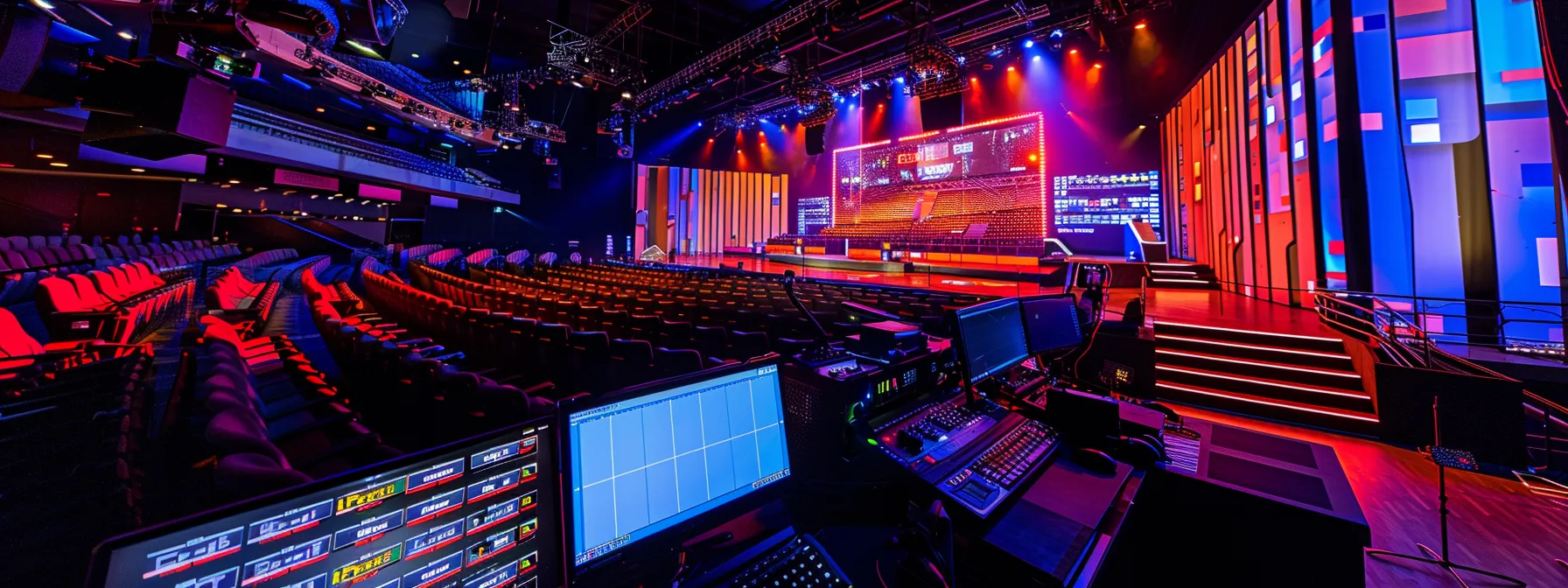
Case studies reveal promising examples of innovative ticketing solutions and technology-driven talent management.
They assess partnerships between tech companies and entertainment firms, illustrate effective content personalization strategies, and offer practical lessons from competitor innovations.
Key takeaways benefit publishers and social media platforms, while app development trends and concise copy steer future investment decisions.
Successes in Talent Management Driven by Tech Advancements
Industry professionals report that tech advancements have reshaped talent management through a user-friendly interface that simplifies daily operations.
They rely on solid survey methodology to adjust fee structures, which in turn boosts interactivity and streamlines communication among team members.
Organizations support talent growth by using actionable insights to secure a subsidy that offsets investment costs.
They analyze survey data to refine the interface and set clear fee standards, directly addressing common challenges and driving practical success in talent management.
Analyzing Partnerships Between Tech Companies and Entertainment Firms
Tech companies team up with entertainment firms to implement web3 innovations that streamline ticketing and talent management.
This collaborative approach, highlighted by the associated press, has caught the attention of mainstream media, showcasing a clear shift toward advanced digital solutions.
The partnerships focus on practical examples of efficiency, where robust technology merges with creative event strategies.
Industry experts note that these alliances address real operational challenges, evidenced by positive coverage in mainstream media and detailed reports from the associated press.
Lessons Learned From Competitor Innovations in the Industry
Industry analysts report that competitor strategies in ticketing and talent management reveal significant gains when systems integrate AI chatbots with secure digital contracts.
Their approaches shorten transaction times and elevate customer interactions, providing practical examples that support strategic improvements across the industry.
Market leaders notice that competitors apply real-time pricing adjustments and robust data analytics to address user needs effectively.
The lessons learned from these efforts offer actionable insights that assist organizations in refining operations and achieving smoother event experiences.
Also check our article“Top Trends in Event Entertainment for 2024”
Conclusion
Emerging entertainment tech trends drive rapid improvements in both ticketing and talent management.
New ticketing methods, such as mobile solutions, blockchain verification, and dynamic pricing, streamline event entry and boost revenue management.
Innovations in talent management, including AI-driven promotion and virtual reality auditions, reshape artist collaboration and improve operational efficiency.
These developments deliver actionable insights that empower organizations to advance live events and digital platforms in a fast-changing industry.
Looking for a band for an event? check the list below for our recommended bands that you can book or hire for the event:
Frequently Asked Questions
How do emerging tech trends impact ticket purchasing?
Emerging tech trends simplify ticket purchasing through secure mobile apps, blockchain verification, and data-driven personalization features. These changes reduce wait times, boost fraud detection, and give customers real-time updates for an overall smoother buying process.
What innovations simplify managing artist collaborations?
Digital platforms streamline artist collaborations with centralized task management, scheduling, and file sharing, while real-time feedback tools aid communication and coordination among creative teams.
Output: How does technology improve the ticketing experience?
Technology streamlines ticket purchasing, reduces errors, and speeds up processing. Digital platforms deliver real-time notifications and simplified payment methods while providing secure, efficient customer service.
What benefits arise from new talent management strategies?
Modern strategies in talent management boost employee engagement, foster skill growth, and improve retention while reinforcing work culture and performance measurement.
How are challenges addressed in adopting modern entertainment tech?
Modern entertainment technology challenges are tackled through strategic research, critical infrastructure investments, and workforce training. Thorough testing and improved operations allow organizations to overcome difficulties while delivering engaging content to audiences.
